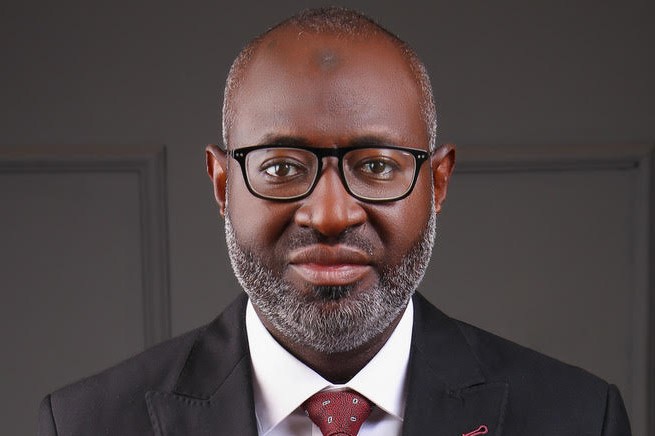West Africa Poised to Unlock Billions in Investments Through Harmonized Digital Market
Lagos, Nigeria – July 30, 2025 – West Africa stands on the cusp of a digital revolution, with the potential to unlock billions of dollars in investments through the creation of a harmonized digital market, according to the West African Telecommunications Regulators Assembly (WATRA). This transformative initiative aims to foster regional integration, enhance connectivity, and drive economic growth across the 15-member Economic Community of West African States (ECOWAS).
A Catalyst for Economic Growth
The push for a single digital market in West Africa aligns with the African Union’s Digital Transformation Strategy, which envisions a unified digital ecosystem by 2030. By harmonizing policies, regulations, and infrastructure, West African nations could attract significant private and public investments, boosting GDP and creating millions of jobs. A 2018 World Bank report on the East African Community estimated that a similar digital market could generate up to $2.6 billion in GDP and 4.5 million jobs, suggesting even greater potential for West Africa’s larger market.
The World Bank’s Digital Transformation for Africa/West Africa Regional Digital Integration Program (DTfA/WARDIP), approved in November 2023, has already committed $266.5 million to improve internet access in The Gambia, Guinea, Guinea-Bissau, and Mauritania. This program, in partnership with the African Union, Smart Africa, and ECOWAS, aims to make internet services more affordable, promote competition, and enhance digital infrastructure, benefiting 1.3 million individuals, including 50% women and people with disabilities.
Key Investment Opportunities
- Digital Infrastructure: Investments in broadband, data centers, and cloud services are critical. West Africa currently has less than 1% of global data center capacity despite housing 18% of the world’s population. Recent investments, such as the $600 million bond issuance by Axian Telecom, supported by a $40 million anchor investment from the Emerging Africa and Asia Infrastructure Fund, highlight the sector’s growth potential.
- High-Tech Sector: As of July 2025, West Africa hosts 528 high-tech companies, with 85 having raised $651 million in venture capital. Companies in fields like fintech, drones, and edge computing are driving innovation, with Nigeria’s Nestcoin and 54gene leading in digital finance and genomics.
- Policy Harmonization: Harmonized data policies and streamlined regulations are essential for cross-border data flows and market fairness. The World Bank emphasizes the need for regional frameworks to reduce regulatory fragmentation and attract private capital through tax incentives and public-private partnerships (PPPs).
- Digital Skills and Inclusion: Closing gender gaps and addressing digital literacy are priorities. DTfA/WARDIP supports Smart Africa in building capacities for policymakers and promoting digital skills, particularly for women and marginalized communities.
Challenges and Solutions
Despite the promise, West Africa faces significant hurdles:
- Digital Divide: Only 36% of the population has broadband access, with 56% living within range but not using it due to affordability and literacy barriers.
- Infrastructure Deficits: Low network coverage, high operating costs, and lack of competition hinder progress. Investments in shared digital infrastructure, such as fiber optics and rural electrification, are critical.
- Regulatory Barriers: Fragmented policies across countries deter investment. Harmonizing telecoms, data protection, and digital taxation policies is vital to enable cross-border trade and e-commerce.
To address these, ECOWAS and regional partners are advocating for streamlined business registration, reduced tariffs, and cybersecurity standards to build investor trust. The World Bank’s $2.47 billion investment in 21 digitalization projects across 16 West African countries since 2023 underscores the region’s commitment.
Success Stories and Momentum
West Africa’s digital economy is already showing promise. Nigeria’s fintech sector, exemplified by platforms like M-Pesa, processes transactions worth over 50% of Kenya’s GDP, a model replicable in West Africa. Additionally, the Abt-led West Africa Trade and Investment Hub facilitated $100 million in agriculture and apparel investments, generating 20,000 jobs and $174 million in sales, demonstrating the power of regional collaboration.
The 2023 Dakar Financing Summit and the 2024 GITEX AFRICA Digital Summit in Marrakech emphasized the urgency of a unified digital market, with African leaders calling for policies to eliminate roaming charges and enhance cross-border trade.
Looking Ahead
With ECOWAS Vision 2050 prioritizing sustainable development and digital integration, West Africa is well-positioned to become a global digital hub. The region’s 300 million consumers, rich resources, and fast-growing economies like Nigeria and Ghana offer high returns for investors. By fostering competition, modernizing regulations, and investing in infrastructure, West Africa could unlock billions in investments, driving inclusive growth and transforming the region’s economic landscape.
Sources: Nairametrics, World Bank, Tracxn, Digital Realty, Abt Global
